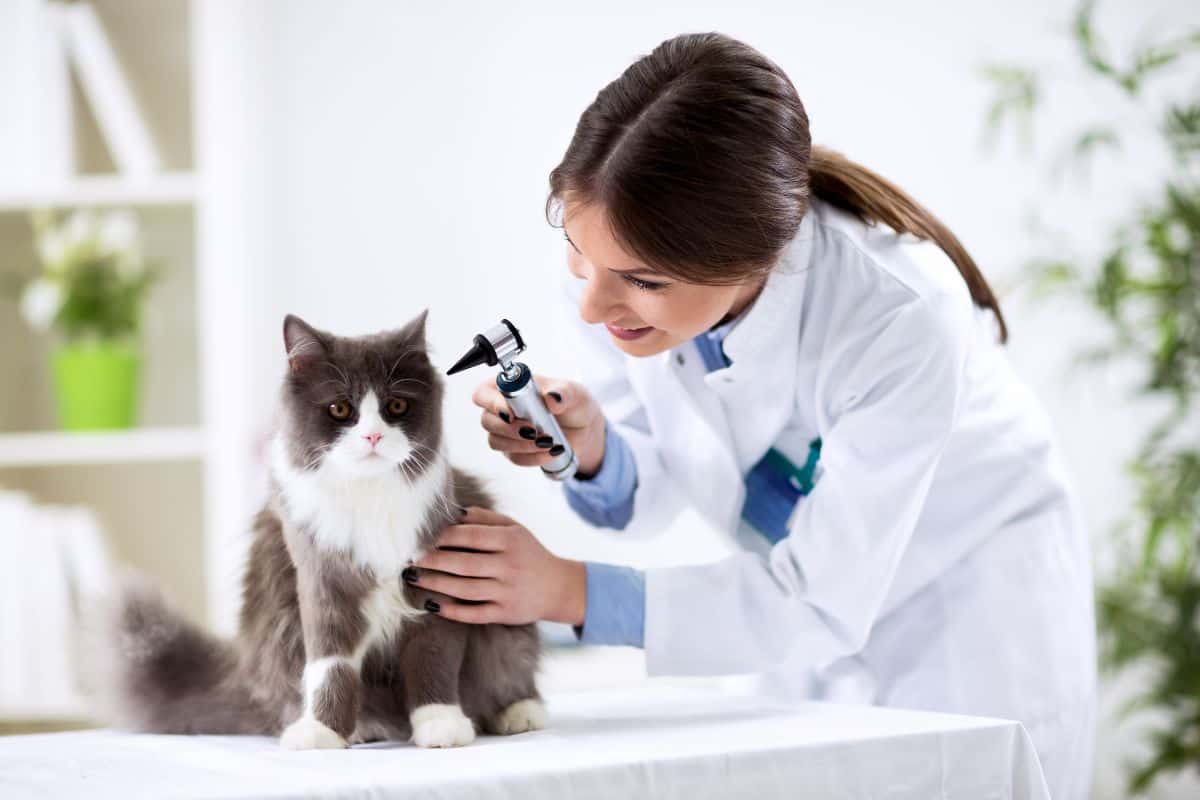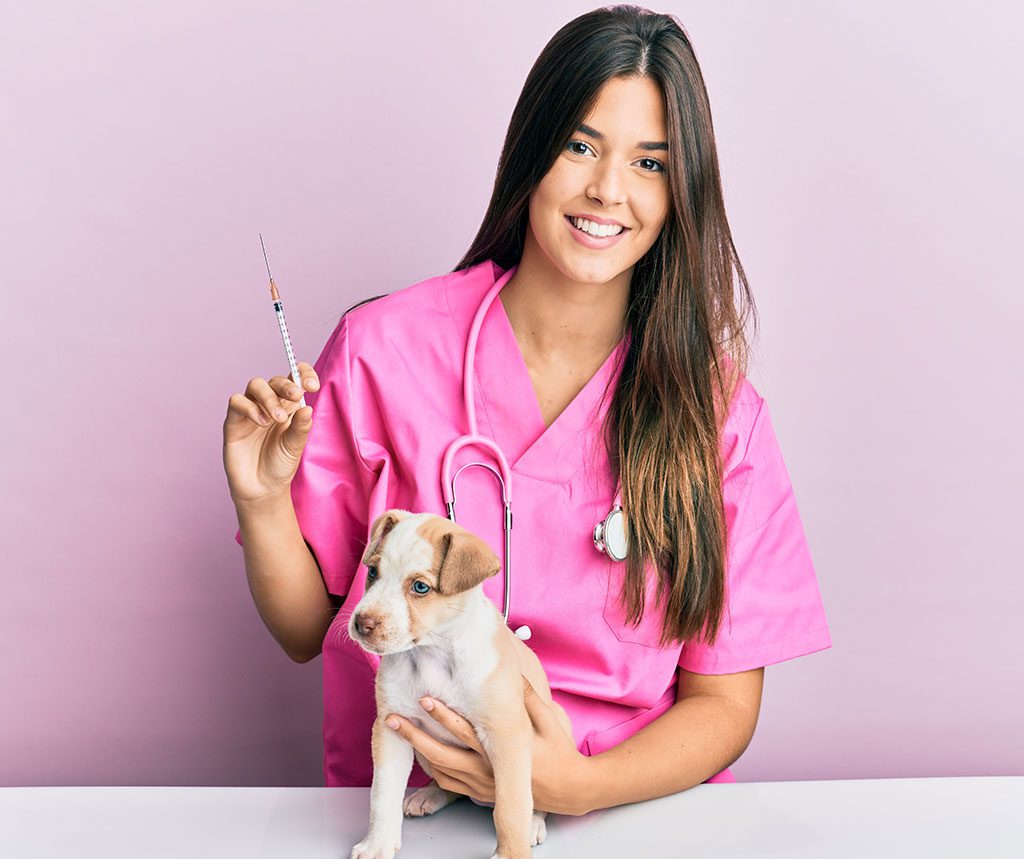Keep Your Pet Healthy with Routine Pet Health Checkups from Trusted Vets
Wiki Article
Vaccination Standards From Your Trusted Veterinarian
Vaccination standards given by your relied on vet play a critical role in safeguarding your family pet's wellness and wellness. Core vaccines are basic for all animals, while non-core injections can be tailored to particular lifestyles and environmental exposures. Understanding the subtleties of inoculation timetables, which start as very early as 6 to 8 weeks, is important for ideal security. Furthermore, attending to usual false impressions bordering vaccinations can additionally enhance family pet owners' confidence in these preventative steps. As we discover these vital elements, it ends up being increasingly clear why regular appointments with your veterinarian are important for educated decision-making.
Relevance of Vaccinations
Vaccinations play a critical duty in securing pets versus an array of avoidable diseases. By boosting the immune system to identify and deal with details microorganisms, vaccines significantly minimize the occurrence of transmittable conditions that can impact a family pet's health and wellness and longevity. Not just do inoculations protect specific pets, however they additionally add to herd resistance, thus lowering the overall occurrence of conditions in the pet populace.Timely vaccinations assist to mitigate the spread of diseases such as rabies, parvovirus, and distemper, which can have serious effects for both people and family pets. Vaccinations are commonly a demand for boarding facilities, brushing solutions, and canine parks, making them essential for those that desire to mingle their pet dogs.

Core Vaccines for Pet Dogs
While the certain vaccination demands of animals can differ based upon individual variables, core injections are generally suggested to shield versus one of the most major and usual diseases (Emergency Vet). Core injections are those deemed crucial for all pets, regardless of their lifestyle or geographical location, as they guard against possibly deadly and highly transmittable diseasesFor pets, the core injections include those for canine distemper, parvovirus, adenovirus (hepatitis), and rabies. Canine distemper is a viral condition that affects the respiratory system, stomach, and nerve systems. Parvovirus is understood for causing serious stomach disease, specifically in puppies. Adenovirus can result in liver illness, while rabies is a zoonotic condition that presents a threat to both human beings and pets.
In cats, core injections encompass feline panleukopenia, feline calicivirus, feline herpesvirus (rhinotracheitis), and rabies. Feline panleukopenia is a very contagious viral illness that influences the immune system and intestinal tracts. Calicivirus and herpesvirus are major factors to top respiratory system infections in felines, while rabies stays a critical issue for public health and wellness.
Seek advice from your vet to guarantee your pet dogs receive their core inoculations on time.
Non-Core Vaccines Explained
Non-core injections are customized to attend to certain risks connected with a pet dog's direct exposure, setting, and way of living to certain conditions. Unlike core vaccines, which are globally advised for all pets, non-core vaccinations are considered based upon private situations. These vaccinations are particularly vital for animals that might experience unique microorganisms because of their geographical place, traveling habits, or activities.Instances of non-core injections include those for Bordetella bronchiseptica, which is connected to kennel coughing, and Lyme condition, triggered by ticks. Animals that often interact with other pets, such as those in boarding facilities, pet parks, or brushing atmospheres, may benefit from Bordetella vaccination. If you live in an area where Lyme condition is common, immunizing versus this condition can be a sensible option for outdoor-loving dogs.
Other non-core vaccinations straight from the source might consist of those for leptospirosis, canine flu, and feline leukemia, depending upon the details danger elements existing. It is necessary to have a complete discussion with your veterinarian regarding your family pet's way of living and the potential need for these injections, ensuring a tailored vaccination strategy that finest shields your furry friend.
Inoculation Set Up Overview

As pets develop, it is essential to abide by the advised booster inoculations. Pet Vaccinations. For adult pets, core injections are generally given each to 3 years, depending upon the details vaccination and regional guidelines. Non-core vaccines may be advised based on way of living elements and local illness occurrence, necessitating a tailored approach
Routine veterinary exams are crucial for upgrading inoculation timetables. Your veterinarian can provide support on the most suitable immunizations for your animal, considering age, health and wellness condition, and ecological risks. By remaining proactive and educated, pet owners can find out this here ensure their fuzzy friends get prompt and effective vaccinations, thereby safeguarding their health and well-being throughout their lives.
Typical Myths About Injections
False impressions regarding pet dog vaccinations can bring about confusion and reluctance among pet proprietors regarding the booster shot process. One prevalent misconception is that vaccinations are unneeded for interior pets. While it's true that interior pets deal with lower threats, they are not completely immune to illness, as virus can be introduced through different methods, consisting of human clothes and other animals.Another false impression is that vaccinations can create the diseases they aim to stop. In truth, the majority of vaccinations consist of inactivated or undermined pathogens, which can not trigger illness in healthy and balanced animals. Some family pet proprietors likewise think that their pet dogs ought to not be immunized if they are already healthy; nevertheless, inoculations are an aggressive measure that helps avoid the beginning of health problem.
Additionally, several family pet owners fear that vaccines will certainly lead to long-lasting health complications. The advantages of vaccination-- protecting family pets from potentially dangerous diseases-- much outweigh the threats.
Final Thought
In summary, adherence to inoculation guidelines is vital for guaranteeing the health and wellness and durability of pet dogs. Dispelling typical misconceptions bordering inoculations further reinforces the relevance of educated decision-making in pet care.Not just do inoculations safeguard private pets, however they also add to herd resistance, therefore decreasing the total prevalence of diseases in the animal populace.
Misconceptions about animal inoculations can lead to complication and hesitation amongst pet dog proprietors concerning the immunization process. While it's true that indoor family pets face lower dangers, they are not totally immune to illness, as microorganisms can be introduced with various means, consisting of human clothing and other pets.
Some animal owners also think that their animals must not be vaccinated if they are currently healthy; however, vaccinations are a proactive action that helps protect against the start of ailment.
The benefits of vaccination-- protecting pets from potentially life-threatening illness-- much outweigh the dangers.
Report this wiki page